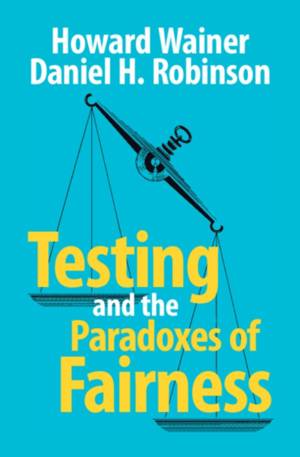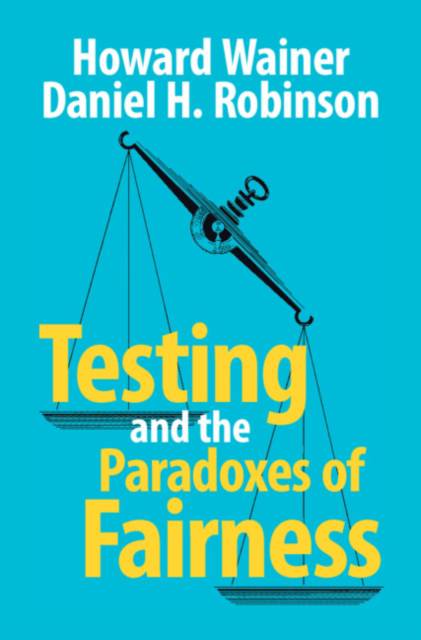
- Afhalen na 1 uur in een winkel met voorraad
- Gratis thuislevering in België vanaf € 30
- Ruim aanbod met 7 miljoen producten
- Afhalen na 1 uur in een winkel met voorraad
- Gratis thuislevering in België vanaf € 30
- Ruim aanbod met 7 miljoen producten
Zoeken
€ 100,95
+ 201 punten
Uitvoering
Omschrijving
How can admissions officers, employers, and scholarship committees maximize the accuracy of prediction of individual performance while minimizing adverse impact due to group differences? Testing offers a straightforward solution to the first half of this problem. Tests are the best way to predict how someone will perform in school, in the military, in medicine, or while controlling airline traffic and flying a plane. Tests are also useful beyond personnel selection, such as for selection of a college major or courses. However, the other side of this problem is more complex. Using tests is always accompanied by group differences that could result in continued systemic discrimination by limiting opportunities for those who are marginalized. This book charts an approach to using tests that incorporates evidence, transparency, and societal values to maximize efficiency and fairness.
Specificaties
Betrokkenen
- Auteur(s):
- Uitgeverij:
Inhoud
- Aantal bladzijden:
- 228
- Taal:
- Engels
Eigenschappen
- Productcode (EAN):
- 9781009576871
- Verschijningsdatum:
- 30/10/2025
- Uitvoering:
- Hardcover
- Formaat:
- Genaaid
- Afmetingen:
- 152 mm x 229 mm
- Gewicht:
- 476 g

Alleen bij Standaard Boekhandel
+ 201 punten op je klantenkaart van Standaard Boekhandel
Beoordelingen
We publiceren alleen reviews die voldoen aan de voorwaarden voor reviews. Bekijk onze voorwaarden voor reviews.







